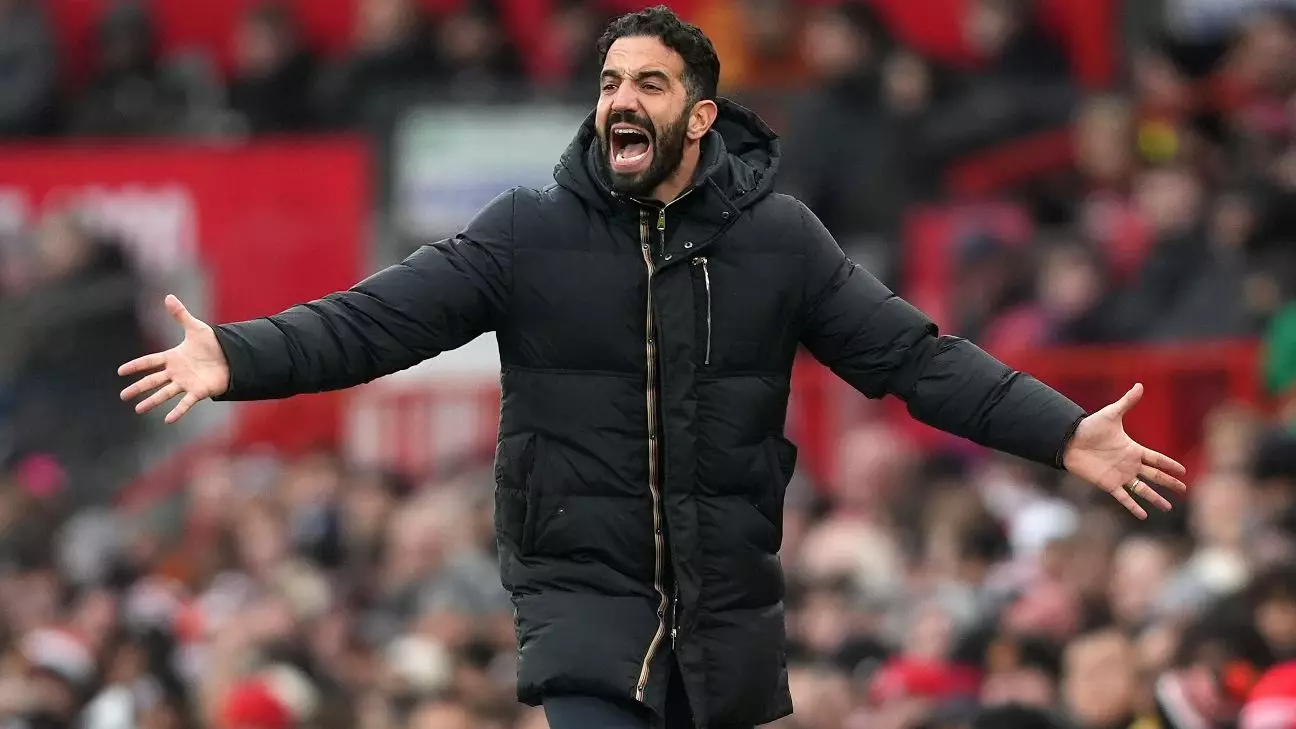Ruben Amorim, the head coach of Manchester United, finds himself amid a storm of scrutiny as he embraces the second half of the season. His recent admission that he is “fighting for his job” underscores the precarious nature of his position following a particularly rocky start. Since taking the reins in November, Amorim has navigated through a series of challenges, with the team experiencing a disappointing record of just six wins in 13 Premier League matches. The loss of home games, with five defeats at Old Trafford, has raised concerns about the team’s performance under his leadership. Although no overt pressure seems to be coming from the club’s management, Amorim recognizes that the stakes are high, embodying the reality that results have a direct impact on a coach’s longevity.
Amorim openly discusses the awareness that comes with managing a top-flight football club. “I know when I choose this profession that you have the risk of results,” he stated, reflecting on the inherent volatility of the coaching role. His self-awareness is commendable, as it highlights the difficult intersection between ambition and realism in a high-pressure environment, especially when one is attempting to implement significant changes mid-season.
The January transfer window presented an opportunity for recalibrating the squad, yet Amorim’s assessment of their venture reflects a calculated risk. While the arrivals of defenders Patrick Dorgu and Ayden Heaven have added some depth, the departures of key attacking players like Antony and Marcus Rashford raise questions about the club’s current strategy. The lack of attacking reinforcements is a critical issue, as United has already demonstrated struggles in front of goal.
Amorim acknowledges this predicament, calling the cautious transfer approach a “risk.” His decision-making reveals a commitment not only to short-term survival but also to long-term vision, aiming to reshape the team’s character and playing style despite the current setbacks. “We are taking some risks but it’s the way we want to proceed,” he maintained, indicating a clear organizational strategy that prioritizes development alongside immediate performance goals.
In professional football, building synergy within a team is essential. Amorim’s insistence on training time echoes his understanding of the significant impact that cohesion has on performance. The coach’s transparent communication about the team’s needs reflects an eagerness to cultivate a system that can efficiently translate training into victories. “We want to win some games; we can improve our team,” he remarked, hinting at optimism that thorough training could yield positive results in the coming matches.
Moreover, the reshaping of the team’s profile underscores a deeper strategy: the intention to attract a certain type of player who aligns with Amorim’s vision. This long-term approach could ultimately refresh the squad’s dynamics and game strategy, but it also underscores the challenges faced when results are lacking and pressure is mounting.
Moving Forward Amidst Uncertainty
The upcoming FA Cup tie against Leicester City will serve as a defining moment for Amorim and his squad. The aftershocks of Rashford’s loan transfer to Aston Villa, a subject that has dominated recent press conferences, add another layer of complexity to his role. Amorim has demonstrated poise in addressing questions about the player’s departure, cleverly shifting the focus to Villa’s Unai Emery, thereby maintaining a strategic distance from the situation.
Looking ahead, the road for Amorim is fraught with potential pitfalls. Yet, his acknowledgment of the challenges coupled with an understanding of the risks reflects a determined mindset. As United grapples with consistency in performance, the focus will be on executing strategies that balance immediate needs with future aspirations. Success or failure in the coming months will not only define Amorim’s tenure but could also influence the club’s direction for years to come, marking this period as a crucial juncture in their storied history.

